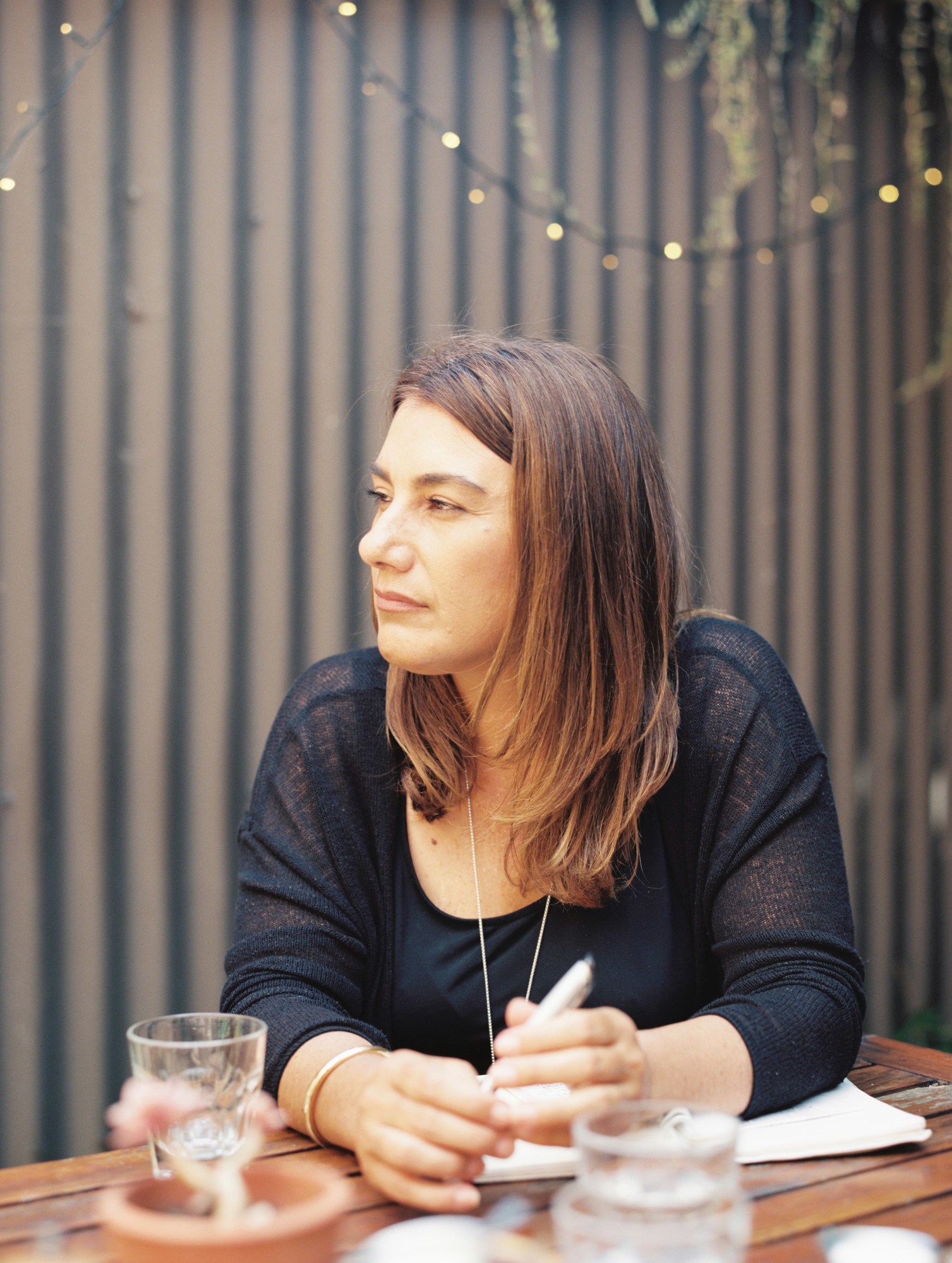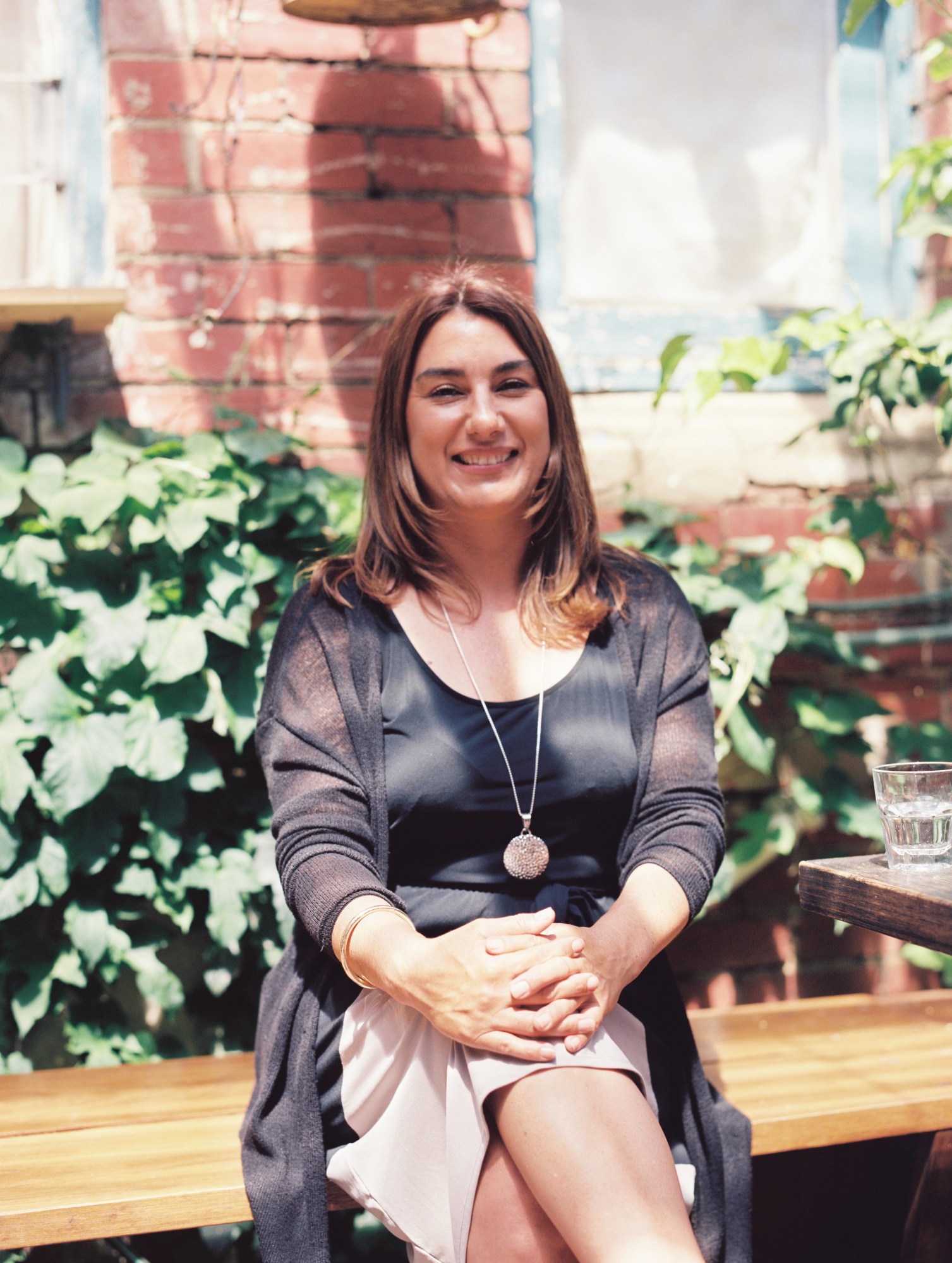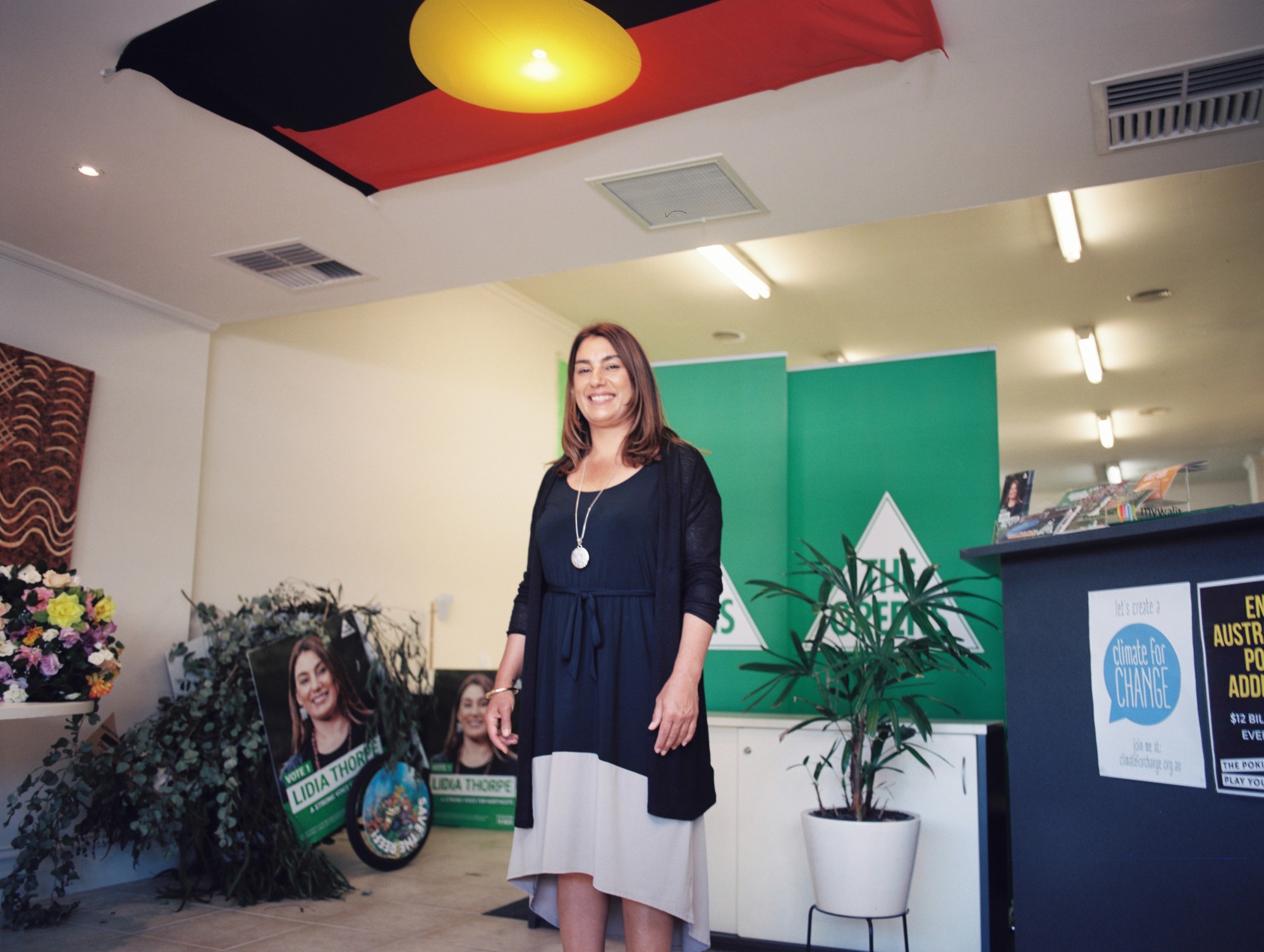While (most of) Australia celebrates a nationwide vote that found a majority of the country supports gay marriage, we’ve still got a bit to do: Manus Island is a humanitarian disaster, the country is experiencing a homelessness crisis, and Indigenous people need reparation.
Greens party candidate Lidia Thorpe is, well, onto it. Born into a politically active and prominent Gunnai-Gunditjmara family, the Melbourne politician left high school when she was 15 at the suggestion of her Uncle Robbie Thorpe. She began work at the Koori Information Centre, and ever since, she’s fought for the recognition of Indigenous sovereignty and environmental protection.
No, seriously: she is chair of Victoria’s NAIDOC committee; was recognised as an emerging voice in the Fellowship of Indigenous Leadership; and has been instrumental in the Change the Date campaign — seeking to move Australia’s national day of celebration to a day that doesn’t commemorate the displacement, genocide, and colonisation of its first people.
Thorpe’s candidacy comes at a crucial time for Victorian state politics: should she be elected to Parliament, it would signal the potential for other inner-Melbourne and traditionally safe ALP seats to be taken by the Greens at next year’s election. Bigger, though, is that as the first aboriginal woman to potentially be elected to Victorian Parliament, she could provide a crucial avenue for establishing Australia’s first treaty between the Victorian Government and its some 300 aboriginal clans, an action widely accepted in activist communities to be the next step in recognition of aboriginal sovereignty.
i-D sat down with Lidia ahead of Saturday’s by-election to discuss accountability, change, and what she hopes for following a victory.

Can you tell me a bit about how you identify politically?
Well, I was born into politics, I come from a strong line of matriarchal women who have fought for our communities for generations, so it comes naturally, and I’ve been fighting for social justice and environmental justice and for my people for all my life pretty much, and that’s what brought me to the Greens. Same values. The policies are in line with what I’m about.
And how do you think your history of advocacy has influenced the campaigning you’re doing now?
The values that I’ve been fighting for are values that a lot of people have in this country, so being part of the Greens has just broadened that. Knowing that people are fighting for the same things, is really heartening. It’s good to know that we’re not in this fight on our own.
What are some issues specific to the Northcote electorate that you’re invested in pursuing?
Public transport is a really big issue here. It’s overcrowded; even on the weekend there were overcrowded trams going into the city. I’ve experienced it. Also, climate, people care about that here. We’ve got a progressive, compassionate, smart community here, they are worried about what will happen if we don’t address the climate emergency that we’re facing. I’m also keen to get these developer donations and gambling donations out of politics.
How about wider Australian issues?
I think climate is just so important right now. We have things like Adani [coal mine], and we need to be fighting for country in that area, and also for the Great Forest National Park.
Do you see a relationship between political donations from property developers in Victoria and gentrification, particularly in Melbourne’s inner north?
It’s not entirely related, but we do need to ensure that councils have more power to be able to make decisions with their community about the developments that happen in their community, and one thing that needs to happen in addition to that is stopping developer donations. Councils should have more power — they’re the ones closest to community, so they should have the power to make the decisions with community. Instead, developers go straight to the Victorian Civil and Administrative Tribunal [VCAT]. If a development gets knocked back at council, developers know they can go straight to VCAT and have it passed through. We need to change it at that level, at the state planning level.
I imagine you have strong feelings on the two-party system.
Absolutely. I think people are sick of the two major parties. They’re not in touch with their community, and I’ve heard that over and over again from voters. They’re just sick of it, they want change.
What do you see as the next steps for the recognition of aboriginal sovereignty in Australia?
I think we need a clan-based treaty. We have 300 clans in Victoria, that haven’t been recognised to date, they’ve never been recognised ever, and I think that to have sovereignty truly recognised, we need to first acknowledge those clans, and those clans need to be part of any discussion about a treaty and a way forward. Everything ties into a treaty for me. Clans speaking on country, for country, is the best way to protect country, I believe. I can only use an example of my own, in Gunnai country right now, where they’re talking about how they can participate more and have a stronger voice in protecting our old growth forests.
Clans speaking on country, for country, is the best way to protect country, I believe.
When you say “protection of country,” how does or doesn’t that differ from climate and other environmental concerns?
It’s the same, really. It’s the same thing, just a different way of saying it. It’s lovely actually because there are a lot of people in the environmental movement who are saying “protect country,” so that language is being shared. I think we’ve got a good shared understanding of what that means.
What issues in your electorate do you see your children facing when as they grow up?
Again, I would say climate, I have to say climate, because what are we without our environment and clean air and drinking water? That would be my biggest worry, for all children, for all generations coming through. It’s a climate emergency and we need to act now.

